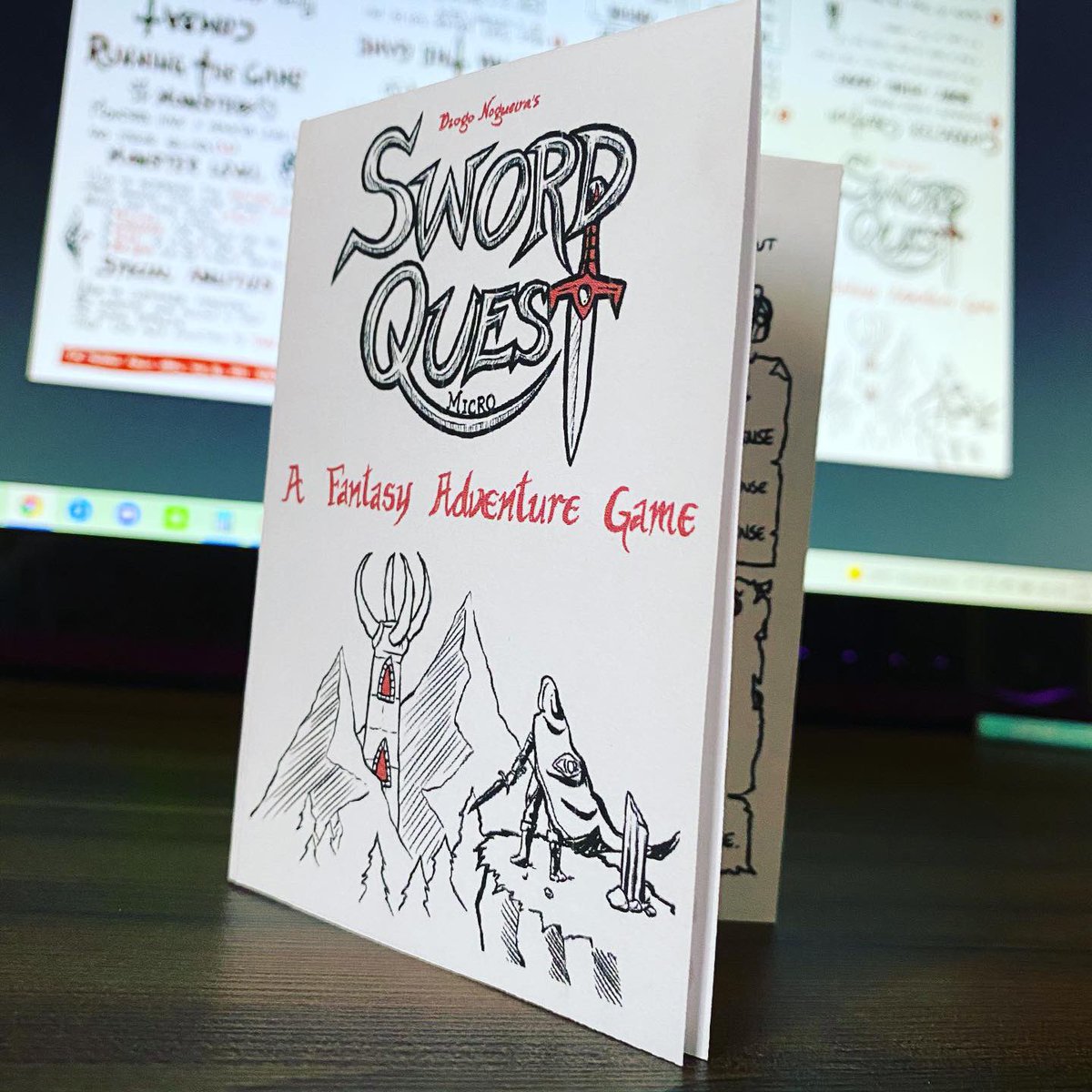Thoughts On “Sword Quest Micro Edition”
Sword Quest Micro Edition is a rules-lite game in the vein of the classic adventure fantasy games of the past.
For USD $2.99 you’ll get a foldable Pocketmod with 6 pages of rules, a cover, and a character sheet.
My first impression was that it was beautifully crafted, with hand-made whimsical illustrations.
The game manages to capture the feel of old-school games but has a few modern tweaks.
Players are the only ones who make checks (roll dice). The game uses two six-sided dice. You need to subtract the negative die (ND) from the positive die (PD), then add a few modifiers.
Player characters have 3 attributes: Body, Mind, and Heart. Characters also come with Tags. Think Fate. Namely, what is the character’s problem or their goal?
Gear and spells can also modify a roll. For instance, a small weapon causes +1 damage, a small shield can absorb 1 attack.
In my playtest, I did not like the number of modifiers that I had to add to a roll. For example, in combat, the player had to defend against an attack. To defend, you need to roll vs. the attack score of the opponent.
So, it’s 2d6, subtract one die from the other, add the body score of the character. But the character also has medium armor (+2 Defense), so I’ll add +2 to the positive die. The shield absorbs 1 attack (from the opponent). That means, I’ll compare the player’s result to the attack score of the opponent, but -1 for the shield.
Now, the player might have an appropriate tag that will help (or hinder) them. That adds another d6, but you can only take the best of two (or the worst of the two).
I’m pretty bad at mental arithmetic, so all the gymnastics don’t come easily to me. You could shorten the “shields absorb 1 attack” to “I’ll add +1 for the player”, but I found that a bit confusing.
Edit: I must have misunderstood the rules. The author answered to this blog post with the following:
To be fair, when Defending I just use the Defense as an Attribute and don’t add Body or anything.
And use the shield as an “oh shit button” to absorb 1 attack completely. I don’t do math with it. It just nullifies one attack. :)
If you run the game that way, it mitigates my concern with the math, of course.
What I like about the game is the simple manner in which it handles “monsters” (all non-player characters). Like in classic Dungeons & Dragons, NPCs have a monster level and might have special abilities. That’s it.
I also applaud the advancement mechanics. For example, you can get 1 experience point (XP) when you “make an impact in [sic] the world”.
The game rules are under the Creative Commons Attribution-ShareAlike 4.0 International (CC BY-SA 4.0), and you are encouraged to create your own material for it.
With 6 small pages, Sword Quest packs a punch and is a feasible option if you need a lightweight fantasy game. It mixes ideas from modern games (Ptba games) with old-school sensibilities.
Unfortunately, it could not capture my heart. This is not to say that it’s a bad game, it’s just not for me.
